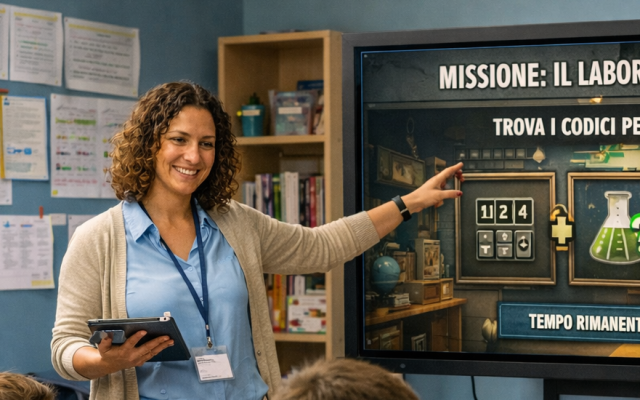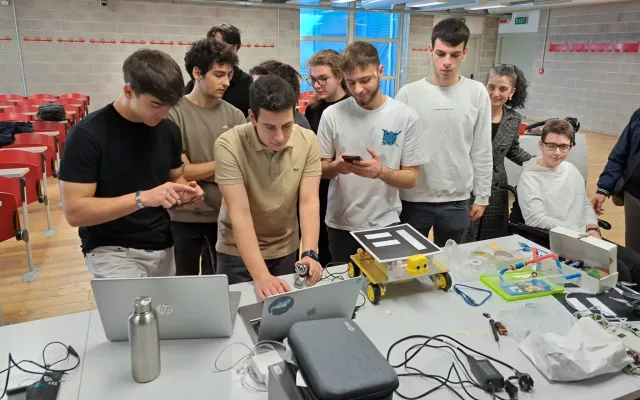Salvatore Lentini has directed the Istituto comprensivo Daniele Spada in Sovere, in the Province of Bergamo, for over seven years, based on the principles of a “school without backpacks” and “educational avantgardes.” He defines his school and an educational community of practices, a laboratory for research and experimentation. “We work every day with great enthusiasm and a team of outstanding teachers to give true meaning to our school … to pursue a different model of school, one that is more exciting and attractive, for our children, but also for all of us, who have made schools the purpose of our lives.” The school interprets the principles of “head, hear, hand” (definition of the Stratford School 21). The educational community met the challenges of the pandemic by remodelling the learning landscape.
Salvatore Lentini received the Tullio De Mauro Award for "Innovating Administrator" at the tenth edition of the Global Junior Challenge, the international competition that selects the most innovative projects that employ new technology for education and the future of youth. The tenth edition, developed in collaboration with the Centro Studi Erickson and the patronage of the City of Rome, is dedicated to projects that brought together innovation and quality education with inclusion during the health emergency, actively involving families and the entire educational community, too.
Motivation for the Innovative School Administrator Award Presented to Salvatore Lentini
An open school without desks and backpacks, organised in learning environments and founded on the principles of community, hospitality, responsibility and self-evaluation. A vision transformed into reality thanks to the determination and far-sighted approach of Salvatore Lentini and his team of teachers. At their school in the Province of Bergamo, they understood how to invest on a model of active didactic activities based on research, technological innovation and collaborative discovery. The dynamic nature, continuous experimentation and inclusive approach not only drove student wellbeing at school, also attracting students from neighbouring areas, but also provided for an immediate and efficient response to the challenges posed by didactic activities during the emergency.



